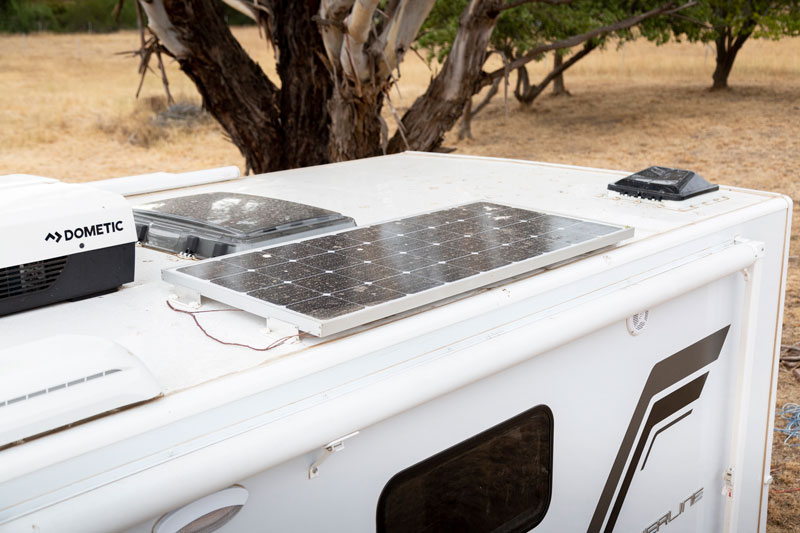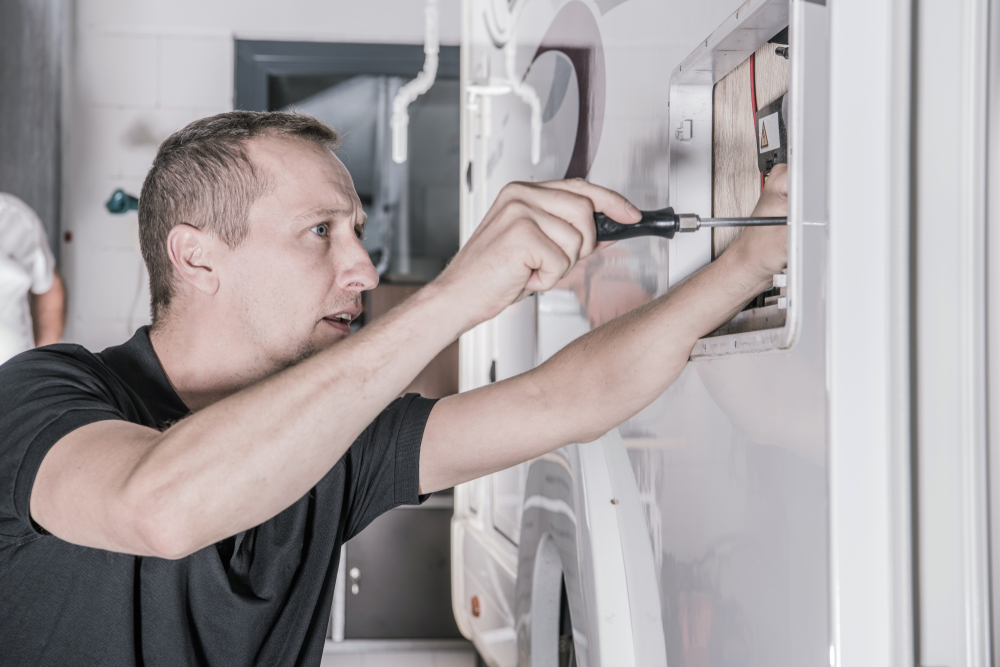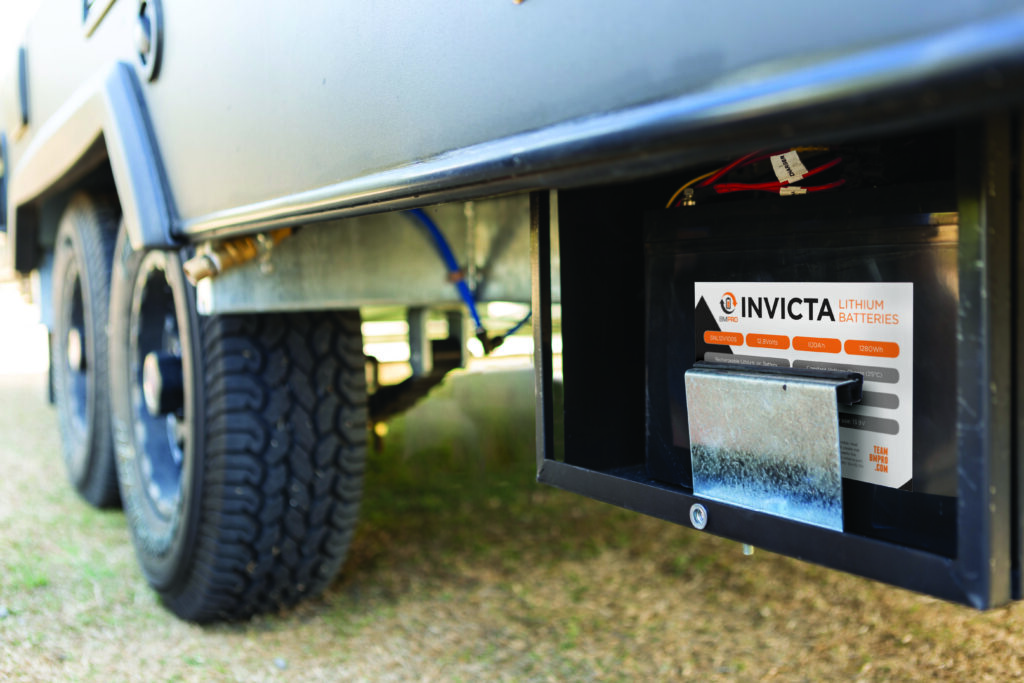
12V Guru – Optimising your Solar Power System
Solar Panels installed on your vehicle roof? Our 12V Guru discusses how to optimise their performance in place of buying more panels
For RV owners, routine maintenance is crucial to guarantee secure and comfortable travel experiences. Despite being experienced, RV owners may commit errors that result in expensive repairs or accidents. That’s why regular upkeep and inspections are necessary to identify and address any potential issues before they become major problems.
A well-maintained RV is less likely to experience breakdowns or malfunction, reducing the chances of unexpected expenses and trip interruptions. By prioritising maintenance and taking necessary precautions, RV owners can enjoy their travels with peace of mind and confidence in their vehicle’s reliability.
There are five primary errors that you must avoid when maintaining your RV to ensure it stays in excellent shape. These mistakes comprise of neglecting your RV’s batteries, inappropriate storage practices and other detrimental behaviours that can lead to significant damage and reduce your vehicle’s lifespan. By considering our guidelines and evading these typical oversights, safeguard your investment and enjoy countless years of secure and unforgettable adventures.
Your RV’s batteries are an essential component, powering everything from lights to appliances. Neglecting this can result in reduced performance, shortened battery life and potentially costly repairs. To avoid this mistake, it’s important to regularly check your RV’s batteries and perform maintenance as needed.
One common issue with RV batteries is sulfation, which occurs when the battery is left discharged for extended periods. Sulfation can cause the battery to lose capacity and may even lead to permanent damage. To prevent sulfation, keep your RV’s batteries charged and avoid letting them discharge completely. One way to avoid this issue is to invest in one of BMPRO’s Power Management Systems to help you monitor the status of your RV’s power system. BMPRO’s range of Power Management Systems helps you keep on top of the status of your RV’s power so you will never be left stranded.
Another important aspect of RV battery maintenance is checking the water levels in flooded lead-acid batteries. These batteries require regular topping off with distilled water to prevent the cells from drying out and damaging the battery. Additionally, it’s important to ensure that your battery terminals are clean and free of corrosion. This can be done by periodically cleaning the terminals with a wire brush and applying a corrosion inhibitor so your RV’s battery will not be left neglected and fail.
As most exposed to the various weather systems, proper maintenance of your RV’s roof is crucial to your vehicle’s functionality. Neglecting your RV’s roof can result in costly repairs, water damage and leaks.
Cleaning your RV’s – keeping it free of debris is essential to roof maintenance. Accumulation of dirt, leaves and other debris can trap moisture and cause leaks. Regular cleaning and removal of debris can prevent such problems. Inspecting the roof for damage is another aspect to be considered. Even small cracks or tears can lead to leaks over time. In addition to this, it’s important to check the seals around the roof vents, air conditioning unit and other openings, as these seals can deteriorate over time and allow water to seep into your RV, causing unnecessary damage.
Your RV’s engine is at the heart of its functionality and neglecting its proper maintenance can result in reduced efficiency, increased fuel consumption and even costly repairs. To avoid these consequences, it’s crucial to regularly service your RV’s engine and perform maintenance when required.
Routine oil and oil filter changes are a significant part of maintenance. Over time, oil can become contaminated and lose its ability to lubricate, leading to engine damage. It is recommended that you replace your RV’s oil and oil filter every 5,000 to 10,000 kilometres or at least every six months, whichever comes first.
Another essential aspect of engine maintenance is checking the air filter frequently. A dirty air filter can hinder your engine’s performance and fuel efficiency. Therefore, it’s vital to examine your RV’s air filter regularly and replace it as necessary. Additionally, inspect your RV’s engine belts and hoses for indications of wear and replace them as needed to ensure optimal performance.
Neglecting your tyres can lead to reduced handling, a higher risk of blowouts, and potentially dangerous accidents. To avoid such risks, it’s important to check your RV’s tyre pressure regularly. SmartPressure can accurately record your tyre pressure and provide you with the information you need to stay up-to-date and avoid any issues.
Keep your tyres properly inflated as driving on underinflated tyres can lead to increased rolling resistance, reduced fuel efficiency and a higher risk of blowouts. Overinflated tyres, on the other hand, can cause reduced handling and increase the likelihood of punctures. Refer to your RV’s manual for the recommended tyre pressure and always check your tyre pressure before and during each trip.
Moreover, checking your RV’s tyre tread depth regularly is also important. Worn tyres can reduce traction and handling which can be a major safety hazard. It’s recommended that you replace your RV’s tyres when the tread depth reaches 4/32 of an inch or less. In addition to checking the tread depth, inspect your tyres for signs of damage such as cuts, punctures or bulges and replace them as needed.
RVs are an expensive investment and proper storage is essential to maximise their value over time. Improper storage can lead to damage from harsh weather conditions, pests and other potential hazards. To steer clear of this, make sure you store your RV correctly when not in use.
Store your RV in a covered area such as a garage or storage facility, to shield it from extreme weather. If outdoor storage is your only option, consider using a cover to protect it from the sun and rain.
Another crucial aspect of RV storage is preparing it for storage. This includes draining the water system, removing all perishable items and securing all loose items to prevent damage during transit. It’s vital to conduct any necessary maintenance such as changing the engine oil and checking the battery, so your RV is ready to go when you need it without any hassle.
Regular maintenance is necessary to ensure that your RV is reliable, safe and ready for future expeditions. Failing to take care of your RV’s batteries, roof, engine, tyres or storage can result in diminished performance, expensive repairs and even fatal accidents. By avoiding common mistakes and performing routine checks can safeguard your investment and enjoy many years of travel.
Get in touch with us to see how we can help power your adventures.
Like this post? Share it!

Solar Panels installed on your vehicle roof? Our 12V Guru discusses how to optimise their performance in place of buying more panels

Looking at installing your own 12V products such as a DC-DC charger and shunt? Our 12V Guru discusses connectors and what you need to know here

This is a guide to help understand the requirements of the new standard in relation to lithium battery

© 2020